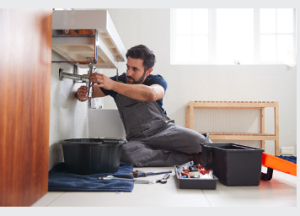A plumber’s job description is a multifaceted one. The job involves using pipes, valves, plumbing fixtures, and tanks to convey fluids for various uses. This job requires a high degree of technical knowledge and hands-on experience. Salary and work environment are important considerations as well. You can find out more about the profession by reading the following sections.
Job Duties
Distinct-Plumbing plumber Modbury is responsible for installing, maintaining, and troubleshooting water and drainage systems. They are also responsible for locating and repairing faulty pipes and fixtures. Licensed plumbers can work on homes or commercial buildings. Some plumbers are on call for emergencies. Job duties vary, but they typically work weekends and evenings. Plumbers should have strong physical and troubleshooting skills.
 Plumbers must study and interpret building codes and plumbing specifications to provide safe, efficient and effective service. They also have to study and analyse building plans to determine the necessary materials and costs, and they also need to cut openings in structures to install pipes. They may need to hang steel supports from ceiling joists to hold pipes in place. Job duties of plumbers include assessing the needs of buildings and pipes and planning the installation of plumbing systems around existing electrical wiring.
Plumbers must study and interpret building codes and plumbing specifications to provide safe, efficient and effective service. They also have to study and analyse building plans to determine the necessary materials and costs, and they also need to cut openings in structures to install pipes. They may need to hang steel supports from ceiling joists to hold pipes in place. Job duties of plumbers include assessing the needs of buildings and pipes and planning the installation of plumbing systems around existing electrical wiring.
Plumbers have strong problem-solving skills and can analyse a situation quickly. They must also be able to explain the various options available. They also must be able to work in different conditions and be flexible in their schedule. For example, they may be required to work nights or weekends to complete a plumbing project.
A plumber must be licensed in their state to practice. Many states require plumbers to have two to five years of experience and pass a licensing exam. A plumber should also have strong analytical skills and be comfortable dealing with people, and plumbing requires extensive study, as plumbing work is highly specialised and requires many years of training.
A plumber’s salary depends on education, experience, and specialisation. Licensed plumbers earn more than their unlicensed counterparts. Apprentice plumbers are paid by the hour on a job site. They start at half of a journeyperson’s hourly rate and increase as their skill and experience increase.
Salary
Plumbing is one of the highest-paying professions. Moreover, it is among the top seven most lucrative occupations that do not require a degree.
Many plumbers work for large companies and receive bonus payments based on company performance. These bonuses are usually paid quarterly or annually and depend on the plumber’s contribution to the company’s success. Depending on the industry, these bonuses can be significant, although they are reserved for the highest-performing employees.
Salaries for Distinct-Plumbing plumber Modbury vary across states, and their salaries depend on location, formal education, and experience. Additionally, plumbers can work for themselves, which can affect their pay. For example, the average plumber in the southern United States earns a lower salary than plumbers in rural areas of the West. In contrast, plumbers in Hawaii, California, Washington, and Alaska earn higher than the national median.
The average plumber earns $21,920 a year. However, some plumbers choose to work as a subcontractor, while others choose to stay at home. The salary for a plumber in these situations can range from $21,920 to $83,430. These plumbers work in private homes and businesses and often repair or install plumbing appliances. They may also be called upon to design and install large pipe networks.
Plumbing jobs are highly physical and require a high level of physical fitness. Often, plumbers must carry heavy equipment and work in cramped crawl spaces. In addition, plumbers must be flexible, open-minded, and good at problem-solving.
Education required
There are a variety of educational requirements for those looking to become a plumber, including completing an apprenticeship or an associate’s degree program. Apprenticeships typically last five years and include safety training and detailed instruction in math, physics, blueprint reading, and state codes. Apprenticeships may also be obtained through high school, technical school, or trade unions.
Most states and localities require plumbers to have a license. The requirements vary from state to state but generally require two to five years of practical training and an exam. Depending on your jurisdiction, you may also need to earn a separate license for gas lines in some areas. Once you have obtained your license, you can begin working on plumbing projects and earning money.
Most plumbers receive their education through an apprenticeship program. An apprenticeship requires about four to five years of paid training and can be sponsored by a union. Typically, you will need a high school diploma, but it is possible to pursue a GED. Additionally, it would help if you had a solid grounding in math, science, technology, and computers. It may also help if you have some prior experience in plumbing.
Plumbing careers are rewarding and lucrative, and they typically require plenty of focus and perseverance. In addition to working on important systems in homes and offices, plumbers also deal with various situations. Getting the proper education and training can be crucial to securing stable employment.
Work environment
The work environment for plumbers is often a challenging one. They are exposed to many hazards daily, such as fumes, airborne contaminants, hazardous materials, and heavy objects. Proper training is crucial for plumbers, and they must learn to protect themselves in these situations. Workers must always wear protective gear and be trained to use tools properly.